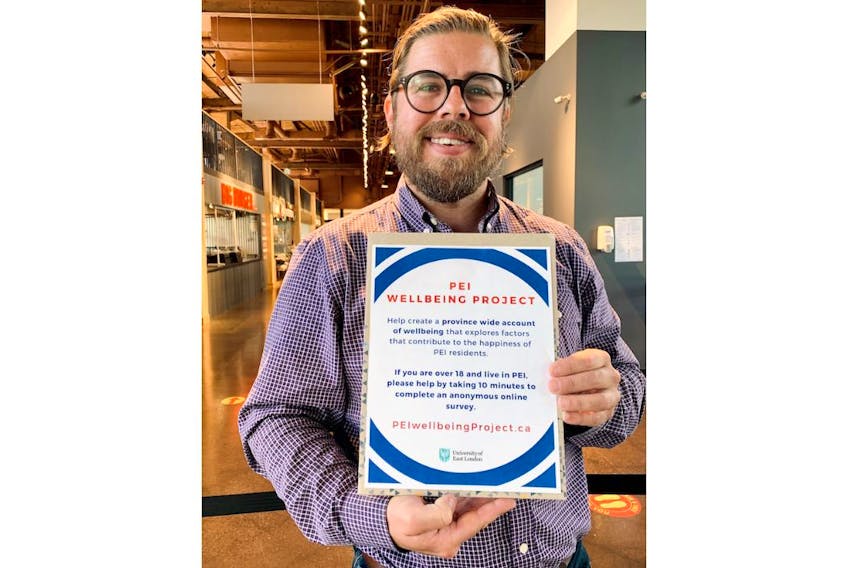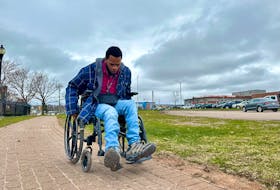Connolly Aziz went to the gym three years ago and hired a personal trainer. He stood on a scale, then set up an exercise schedule. A few months later, he was measured again and saw a difference.
Later, Aziz started studying positive psychology at the University of East London. He learned there is a scientific way to measure well-being, much like his trainer measured his body.
“That’s when a light bulb went off in my head,” said Aziz, who moved to P.E.I. in 2019 where he is continuing his masters studies.
He decided to take those well-being measurements further.
“I looked at some research while studying at the university and realized there are some communities that have a very low level of certain types of well-being. That deserves attention.”
On Oct. 1, Aziz began running an online survey called the P.E.I. Wellbeing Project collecting data from Island residents about how happy they think they are.
“When someone experiences higher levels of positive emotions and lower levels of negative emotions, it is a strong indicator of happiness,” Aziz said.
Participation is anonymous, he said.
“Anyone who (is) 18 years old or older and currently lives on the Island, including students, international people, Indigenous community, new immigrants, the elderly, people with disabilities, the LGBTQ+ community and more are invited to participate.”
The survey is open until Nov. 30.
The final report will be published in April and it will be available to the public.
“I hope people take this data, pay attention to it and make some social changes,” Aziz said.
Anna MacDonald, a third year UPEI psychology student, recently took the survey. She said it’s important to have people who take time to ask Islanders how they appreciate their lives here.
“I have never thought about that before. It shows that there’s someone who cares and wants to make sure we are all happy here.”
The survey doesn’t take too long, MacDonald said.
“It only took me five minutes. The questions are clear and concise.”
UPEI psychology and graduate faculty professor Colleen MacQuarrie has her doubts about the project.
Happiness is a fleeting emotion that comes when people feel safe and have the resources for well-being, she said.
“I worry that focusing on fleeting emotions such as happiness may miss the point that it is actually a reflection on how well the systems within a community support well-being.
“Well-being is supported by affordable and safe housing, sufficient resources to purchase adequate food and clothing, a sense of belonging to a safe and welcoming environment free from harassment and other forms of violence and resources to provide for basic necessities,” she said.”
“When these core safety concerns are met, then well-being and a sense of purpose and meaning in your connections to others is much more possible.”
The survey focusses how respondents feel in the moment, but not about how and why people feel the way they do, said MacQuarrie.
“Such descriptive surveys lack a capacity for interpretation about processes that create injustice and inequity. They miss the opportunity to understand how systems impact people.”
Aziz says his survey includes a number of questions addressing causes, he said.
“The questions cover how people evaluate their emotions, physical health, psychological health, social relationships and the environment they live in,” he said. “That’s how this project measures happiness.”
The results may be used to find ways to increase well-being in the province, he said.
“With the survey, I identify groups in communities across the Island, learn about their emotion level and satisfaction level, examine the result to give recommendations to policy makers and community organizations to create social change for the better.”









